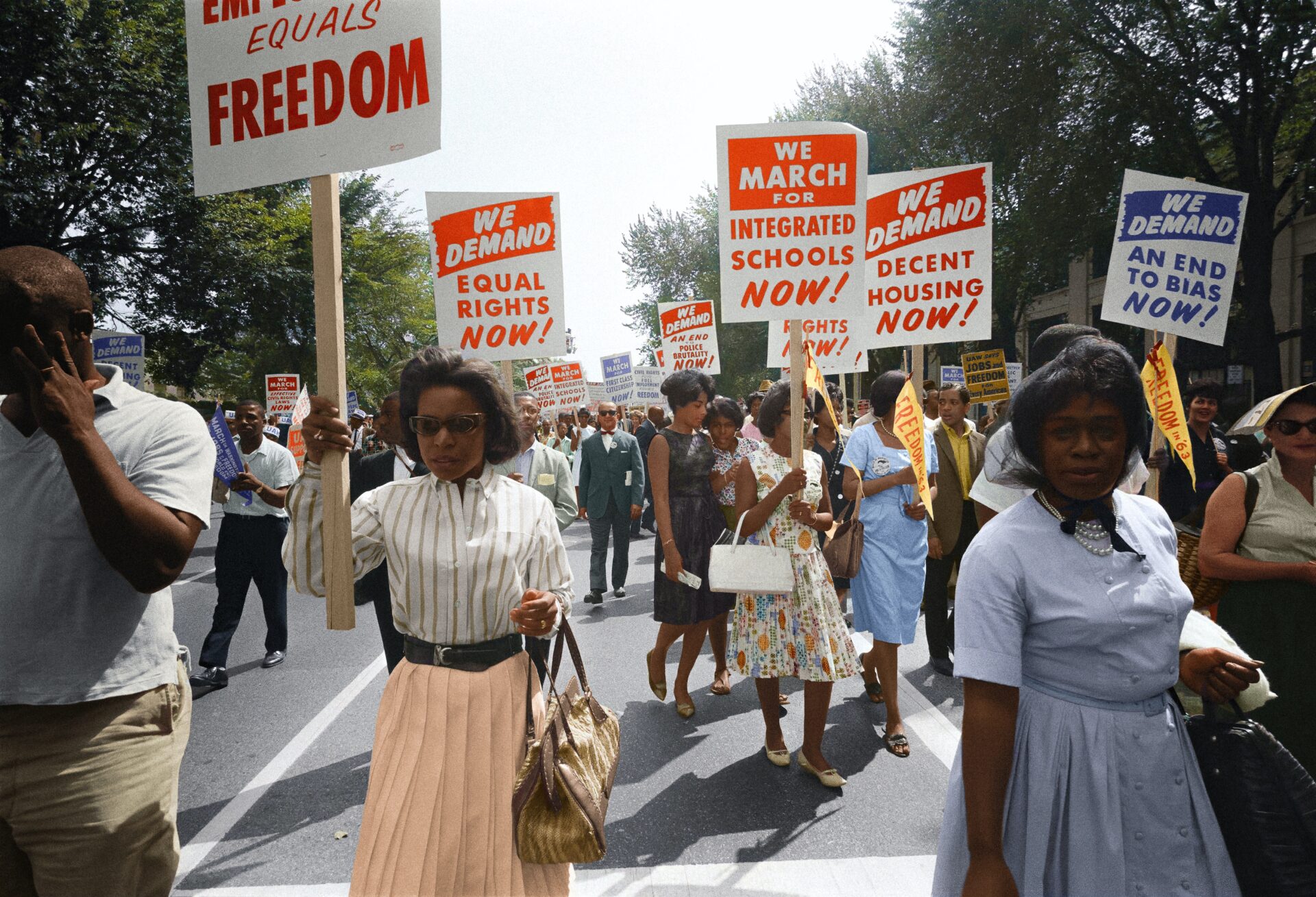
Civil rights march on Washington, D.C., August 28th, 1963
Photo by Unseen Histories on Unsplash
Celebrating Black Women’s History
March marks Women’s History Month, and for African American women, the observance creates a bit of a conundrum, particularly on the heels of Black History Month. We are seen first as black. After all, race is what a color conscious, ethnically sensitized society primarily recognizes. As African Americans, we are expected to be in solidarity with our African American brothers even when, driven by patriarchal norms, they are motivated to assert dominance and priority. However, we are more than African American. We are also women, and we find ourselves balancing the demands of a majority who believe that their fight for gender equity should be ours as well. So, as African American women, how do we celebrate these two observances?
I maintain we celebrate with the courage of Isabella Bomfree, better known as Sojourner Truth. Born to enslaved parents in Ulster County, New York, Bomfree endured a harsh childhood during which she was bought and sold four times and cruelly beaten by those who enslaved her. When her enslaver, John Dumont, promised to free her but later reneged, Bomfree completed what she felt was her obligation to him and courageously walked away. She left with her youngest daughter in tow, leaving four children behind because they were legally bound to Dumont. After New York passed an Anti-Slavery Law emancipating all enslaved people in 1827, Dumont illegally sold Bomfree’s five-year-old son Peter into slavery in Alabama. With the help of the Van Wageners, an abolitionist family who bought her freedom from Dumont for twenty dollars, Bomfree successfully sued for the return of her son. She was the first black woman to sue a white man in court in the United States and prevail. She courageously used her voice to advocate for truth and in 1843, it was this calling that moved her to change her name and embark on a journey to preach the gospel, speaking out against slavery and oppression.
Because Sojourner Truth advocated for her rights, we can rightfully claim our places as women. Because Ella Baker was determined to lead by raising others, we are similarly determined in our leadership. Because Dorothy Height was not dissuaded from being herself, we can courageously be our authentic selves. Because of them, we are. Therefore celebrate, my sisters of the African diaspora. Sashay seamlessly from Black History to Women’s History and claim your unique space.
I maintain we celebrate with the determination of Ella Baker. Ella Baker was born in 1903 in Norfolk, Virginia, and she “grew up in a female-centered household, surrounded by a community of Christian women actively engaged in uplifting their families and communities.”[i] Her upbringing propelled her toward a life of community service. Her desire to serve led her to help form the Southern Christian Leadership Conference (SCLC) in 1957. Although Martin Luther King would be credited as the “great man” leader of SCLC, Baker did the groundwork to develop the fledging organization. In a dogged and determined fashion, Baker, functioning at times “out of a telephone booth and [her] pocketbook,”[ii] made the SCLC into an operational entity. She exhibited these same leadership characteristics when she helped North Carolina Agriculture and Technical students stage sit-ins to protest segregation in local stores in Greensboro, NC. She convened more than 300 students for what would become the Student Nonviolent Coordinating Conference.[iii] At age 57, she could have used her influence to steer the direction of the organization. But she was determined that the students use their talents, developing solutions that came from their collective wisdom.
I maintain we celebrate by being ourselves like Dorothy Height. Height was the only woman of the civil rights inner circle who was on stage with Martin Luther King during his “I Have a Dream” speech. Although she was an integral part of the planning and execution of the March on Washington, Height’s name is rarely mentioned.[iv] However, she was unfazed by this minimized role, as she attested in a video captured by the Visionary Project.[v] In an interview, she recounted a civil rights conference planning meeting during which the committee’s chairman expressed concerns that she was knitting. When she later challenged the work that had been done by the committee, evidence that she heard and comprehended every detail discussed, the chairman apologized and said that he would never again complain about her knitting. How many would have shied away from knitting during a meeting, feeling that it diminished their impact as women? But Height asserted that she could knit and be fully present; fully herself.
Today we might call these individuals womanist leaders: African American women who have created a model of leadership that is self-defined, inclusively expansive, and empowering for those who have traditionally been on the margins. They looked at their situations and they advocated for those around them so that all could ultimately be lifted. Because Sojourner Truth advocated for her rights, we can rightfully claim our places as women. Because Ella Baker was determined to lead by raising others, we are similarly determined in our leadership. Because Dorothy Height was not dissuaded from being herself, we can courageously be our authentic selves. Because of them, we are. Therefore celebrate, my sisters of the African diaspora. Sashay seamlessly from Black History to Women’s History and claim your unique space.
The Rev. Dr. Debora Jackson is Dean of the Business School of Worcester Polytechnic Institute, a premiere Science, Technology, Engineering, and Math (STEM) based institution that develops adaptive leaders who create sustainable solutions, deliver globally responsible impact, and conduct transformative research at the intersection of business, technology, and people. Her book “Meant for Good: Fundamentals in Womanist Leadership,” is available from Judson Press.
The views expressed are those of the author and not necessarily those of American Baptist Home Mission Societies.
[i] Barbara Ransby, Ella Baker and the Black Freedom Movement: A Radical Democratic Vision, (Chapel Hill, NC: University of North Carolina Press, 2003), 15.
[ii] Ibid, 181.
[iii] Aprele Elliott, Ella Baker: Free Agent of Change, Journal of Black Studies, Vol. 26, No. 5, Special Issue: The Voices of African American Women in the Civil Rights Movement (May, 1996), 600.
[iv] Debora Jackson, Meant for Good: Fundamentals of Womanist Leadership, (Valley Forge, PA: Judson Press, 2019), 121.
[v] The Visionary Project, Dorothy I. Height, National Visionary, 2002-2013, http://visionaryproject.com/heightdorothy/, Clip 3 of 10.



